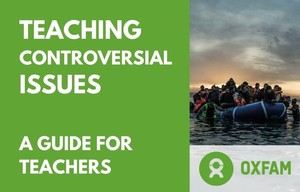
World Philosophy Day
Every third Thursday of November.
Celebrating the importance of philosophy to society.
About the event
World Philosophy day was initiated by UNESCO in 2002. It aims to celebrate the importance of philosophy to humanity, both as a method of critical thought and a treasure trove of cultural ideas. In particular, it is highlighted how philosophy develops our capacity to reason and to think through problems in a logical way. This in turn improves tolerance, global understanding and, according to UNESCO, helps us ‘respond to major contemporary challenges by creating the intellectual conditions for change’.
How to approach it
This is a great day to give a basic understanding of what philosophy actually is. Philosophy comes in many forms all over the world, but what it fundamentally comes down to is the concept of ‘reasoning’. Reasoning is about interrogating the theories, concepts, and morals we use for understanding the world around us. It includes questions like: What does it mean to be ethical? What is the meaning of justice? What does it mean to be free? What does it mean to be conscious?
Although these questions may seem very abstract, we use philosophical tools such as justifying arguments, questioning values and debating morals every day. The aim of today is to help your students see this. There are many possible ways to do this. One is to pull up some famous quotes by different philosophers like Descartes’ famous ‘I think therefore I am’. Aim for a mix of different nationalities, especially philosopher’s from the global south such as Bell Hooks, Franz Fanon or Kyle Whyte. Discuss them with your class and see if students can apply the quotes to their lives. Perhaps one quote may touch on something they have always wondered about, perhaps there’s an ethical rule they really disagree with and want to challenge.
Conversation starter
Philosophy may seem abstract and inaccessible, but it can help us every day. It can improve how we structure our arguments, it can help us to see the world in a new way or make us able to articulate what is ethical and what is not. Socrates said ‘the unexamined life is not worth living’: what do you think that means?





